It takes over 1200 bees their whole life to make that jar of honey you pick up off the shelf [1]. If you had toiled endlessly to provide food for the colony I think you might be a bit miffed when someone stole that honey! The answer to the question “Do bees get mad when you take their honey?” should be fairly obvious.
In this article we examine the realities of the honey industry and how market forces drive commercial, large-scale honey production. As is almost always the case, the requirement to produce an ever-increasing rate of profit to keep the shareholders happy means something has to give … and guess what? It’s the bees’ welfare that usually ‘gives’.
Do Bees Get Mad When You Take Their Honey?
Yes, bees get really mad when you take their honey! It’s why beekeepers have to wear those full-on protective suits when ‘harvesting’ the product. This exploitation is what vegans object to and we avoid eating honey as a result. If you think that’s utterly irrational, read on …
Watch: Earthling Ed on why vegans don’t eat honey …
( Ed pretty much covers it all here. Well worth a quick watch. )
Why Do Vegans Not Eat Honey?
The debate around honey and veganism seems to elicit some strong reactions in many people – especially from the rabid anti-vegan crowd who will latch on to any story in order to ‘prove’ their point. Often, however, they are just proving how ignorant they are. So why do vegans not eat honey? Let’s investigate …
First of all, let’s try to frame this sensibly and establish what veganism actually is …
The official definition of veganism from the Vegan Society refers to the elimination of all animal products from a person’s everyday life as much as possible.
While the main component of this is the diet, vegans will also avoid buying leather shoes or any other products derived from animals. Products tested on animals are also avoided.

Often this angle is used by antagonists to ‘win’ an argument and everyone goes away thinking vegans are idealistic hypocrites. It’s way too simplistic a view.
I think the Vegan Society definition of veganism is 99% complete. In summary:
Veganism is a philosophy in which the followers strive to exclude from their lives, all forms of animal cruelty and exploitation for food and any other purpose, as much as is practical and possible.
The key words here being ‘practical’ and ‘possible’.
So, we vegans work on the principle of doing the best we can to reduce our individual contribution to the suffering of animals. Veganism is, simply, all about animal rights.
We know it is impossible to be 100% vegan in this consumer driven world. It might conceivably be possible to live a 100% vegan life on some fertile desert island somewhere but most of us have to live in the real world.
Choosing not to buy honey is one of the ways vegans follow this guiding principle. But many an omnivore will balk at this point, unable to extend the logic to bees. Why not? They’re animals too.
Are Bees Harmed For Honey?
In a word … yes.
You may have grown up thinking bees make honey just so we can spread it on our toast in the morning. You wouldn’t be alone. When you were little, you may have had the story of Winnie The Pooh read to you to get you off to sleep. The adorable, honey-loving, furry mammal.
Buzz, buzz, buzz … I wonder why he does!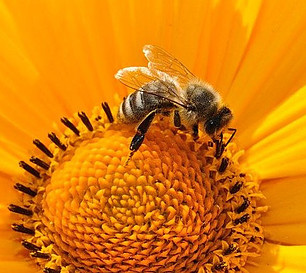
Of course, bees don’t toil away endlessly throughout the summer to satisfy our taste buds. They do it to ensure there is enough sustenance to get them through the lean Winter months.
Then we humans come along and steal much of their hard-earned bounty, replacing it with a sugar substitute.
There is very little nutritional value in the sugar substitute feed given to bees and it is lacking the antioxidants which help to fight off infections in the hive. Without their honey, the bees are susceptible to a whole array of diseases, some of which can decimate a hive.
These diseases can then spread to other pollinating insects with huge detrimental effects on our environment and our agriculture. Some will argue that commercial beekeeping benefits the environment but this is not the case.
As well as the myriad of diseases which can spread far and wide, large scale beekeeping actually pushes out native pollinators due to the sheer numbers of honey bees competing for the same resources.
Makes sense.
To provide a little balance, it is perfectly possible to farm bees sustainably and leave enough honey for the bees to get through the Winter.
Unfortunately, in our capitalist driven world where profit is king, the temptation to harvest too much honey is always there.
Other cruel practices involve clipping the queen’s wings so she cannot take the colony elsewhere and selective breeding focusing on maximising honey production can weaken the bee’s immune system compounding the stresses on the hive.
Bogus Arguments & Lazy False Equivalence
There is an article in the Washington Post ranking well in Google when searching on this subject. You may have read it. In this article the author discusses how vegans should not be eating avocados if honey is off the menu.
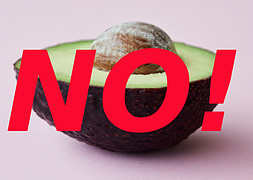
The argument goes: because many of our fruits and vegetables are pollinated using a practice known as migratory beekeeping, vegans should avoid all these foods because bees are exploited and often harmed during this process.
This is a lazy false equivalence. The ‘award-winning’ author is obviously well aware of the tried and tested narrative here. It’s been doing the rounds for a while now.
In my ‘migratory beekeeping’ article linked to above I explain how deeply flawed the argument actually is.
The anti-vegan brigade have well and truly latched on to this idea and while it can be convincing at first glance, it doesn’t take long to see through.
Veganism does not work like this and maybe if the author had looked a bit closer at what most vegans actually believe, she would’ve thought again about writing the piece. In fact, her article is basically just click-bait in my opinion.
As far as migratory beekeeping goes, there’s a strong argument for suggesting we wouldn’t even need to engage in the practice if intensive agriculture hadn’t become so pervasive. Monoculture creates vast swathes of land devoid of biodiversity and natural pollinators.
Most land given over to monoculture is to produce food for livestock [2]. An inconvenient fact but illustrated perfectly in the below chart …
Vegans are often ridiculed when discussing honey but why is it so difficult for the other side to extend the logic to bees? They’re just another animal humans exploit.
Vegans do their best to reduce the suffering of animals in full knowledge that it is virtually impossible to go about your daily life without harming animals in some way. If you took this false equivalence argument to its logical conclusion, vegans wouldn’t drive cars on roads because asphalt can also harm animals.
It’s all about minimising our impact on the natural world. Just because you can’t do something 100% doesn’t mean you shouldn’t do it at all.
Doing Your Best is Better Than Doing Nothing
Veganism is a way of life, guided by a set of ethics based on compassion and empathy towards the creatures we share this planet with.
Some equate veganism with religion and there are very strong feelings on both sides of the scales. It can be a very emotive subject for many; vegans and non-vegans alike!
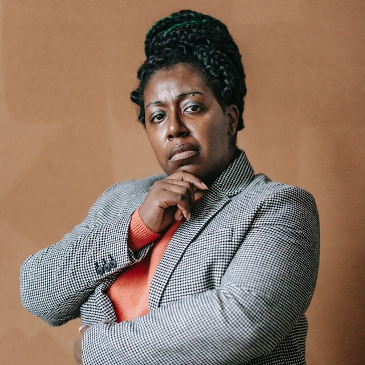
As with religion, there are the strict devotees and those who are less strict. There are many different interpretations of what a vegan lifestyle should look like.
It’s not a black and white situation as some try to make out. Can vegans have honey or avocados or cucumbers? Where do vegans draw the line?
With regards to honey, the answer is dependent on how strict you are. It’s a balancing act. Some vegans will eat honey, some won’t.
Strict vegans will insist the others are not vegan and technically, this is correct. Personally, I don’t eat honey.
But if you eat honey yet are vegan in every other way then you’re still making a huge contribution to minimising the animal cruelty and suffering which goes on every single day due to industrial farming practices.
You could try to avoid large scale, commercially produced honey and buy from smaller, local producers where you can maybe check the provenance and even ask the beekeeper some questions about the bee’s welfare.
Many smaller beekeepers do treat their bees much more humanely.
Truth is, being vegan is about doing what you can. It’s about knowing our best hope is to minimise the suffering our choices cause to other species.
Because it’s better than doing nothing!
If You Were a Bee, You’d Be Mad Too
Just as large scale beef and dairy production exploits the animals, so large scale honey production is the same.
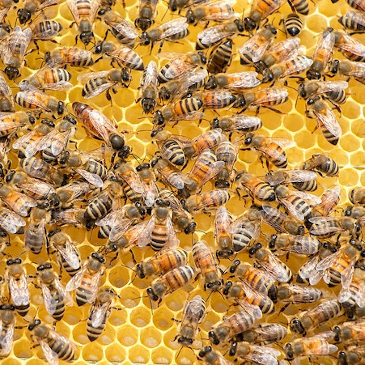
You could argue about the relative sentience of a bee versus a cow and gradations of suffering but it’s much easier to just not eat the honey.
It’s a simple thing we can do as vegans to reduce our impact on the suffering of other animals. Giving up all foods pollinated by factory bees is not so easy.
… and that is about as clear as I can make it 🙂
Hopefully this article has helped you answer your question today and you have more of an idea about why vegans reject honey.
Vegans are just doing the best we can to behave in the most compassionate and ethical way we know how.
… and that’s all any of us can do.
Let Me Know:
Please share this post using the socials and I’d love to hear your thoughts on this article and the whole philosophical debate around veganism. Please do leave your comments and questions below; I’ll do my best to respond quickly …
If you want more then you can sign up for our new content alerts here and we’ll let you know the moment we publish.
Thank you for reading 🙂
Rohan.
Originally published on: May 22, 2021 at 10:23. Updated with extra content and sources on: May 12, 2022 at 07:19. Updated with further sources, content edits/additions and a video on Jan 31, 2023 at 20:53.
[1] – Jan at OneHoneyBee.com. Link retrieved 31.01.2023 – How Many Bees Does It Take to Make A Jar of Honey? [2] – Ritchie, H. 03.10.2017. Our World In Data. How much of the world’s land would we need in order to feed the global population with the average diet of a given country? https://ourworldindata.org/agricultural-land-by-global-diets
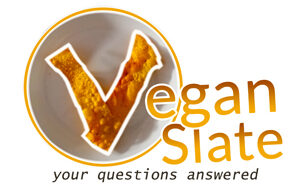
We have bee hives and the bee hive has a brood box on the bottom. Then two supers. We harvest from the top super and the bees have ample food in the Lower two boxes. No substitute is given to the bees. You have a very limited knowledge of bee keeping to suit your argument.
Hi Nigel, thank you for your comment. We kept bees on the farm when I was growing up so, while my knowledge is not as great as yours, I’m not completely clueless 🙂
I do remember using sugar substitute to supplement the winter food stocks and we were definitely not commercial beekeepers. The practice is widespread, commercially, I’m sure you’d agree?
That’s great you leave enough honey for the bees. I did mention in the article that it’s possible to keep bees sustainably and not take so much honey that sugar substitution is required. So I covered beekeepers like you. Are you operating commercially on any scale?
I’d also be interested to know what you think about the native pollinator argument?
Thank you for this article. I was wondering if you think buying honey from small local farms is ok. I’m a brand new vegan (day 54). After 60 years, I saw the movies What the Health, Cowspiracy, and The Game Changers, and my husband I both changed — that day. So grateful but so much to learn.
Hi Niki and thanks for asking the question – it’s a very contentious one!
Strictly speaking, the answer is no because very simply, it’s exploitation of animals. The honey is for the bees and that’s that. Having said that, some vegans will eat honey and some won’t. It really is your call.
It’s certainly nowhere near as cruel as the meat industry, for example.
You could ask the local beekeeper whether they clip the Queen’s wings (not all do) and what percentage of honey they leave for the bees. That will help to inform your decision. If it’s any help, I don’t eat honey 🙂
Kudos to you and your husband for switching to veganism after 60 years … that’s not easy!
What an eye-opener, You have certainly written this article in a way that educates non-vegans ( that is me). Understanding what it is to be considered a vegan gives give one a clearer idea of why some eat honey and others do not. It is about doing your best but still driving a car. We could all be considered vegans to some degree simply by trying to minimise our impact on the animal life on our wonderful planet, Maybe more of us should become a little (or a lot) more vegan.
Hey Bryan, thank you for taking the time to stop by 🙂 I’m glad you found this informative. Most vegans would argue there are no degrees of veganism. You’re either vegan or you’re not. To be vegan is to do as much as you possibly can to ensure your buying choices do not cause the suffering and death of the sentient beings we share the world with.
But you can certainly choose to adopt more of the same choices as vegans do and in doing so, reduce your impact on the world around us.
… and that is something we all need to do!
Have a great day 🙂
Rohan.
The things we do not know! You have provided an excellent overview of not only the vegan’s problem with honey, but of the vegan lifestyle itself. And I applaud the the sentiment that you must do the best we can, even if not perfect, in this consumerism driven world of big conglomerates taking over everything. The very though that honey “manufacturers” clip the Queens wings is very distressing. The fact that sugar substitute will get them through the winter instead of their own honey is disgusting to me. This article is a real eye-opener. I hope many more eye see it, at it provides real insight.
Hi Brien and thank you very much for taking the time to read my post! If it helps just one person to understand a little more about veganism then my work is done 🙂 But the more eyes the better, obviously!
Yes, there is much wrong with commercial honey production. Just one tiny piece of an overall attitude towards animals and the way humans exploit them.
Have a great day Brien 🙂